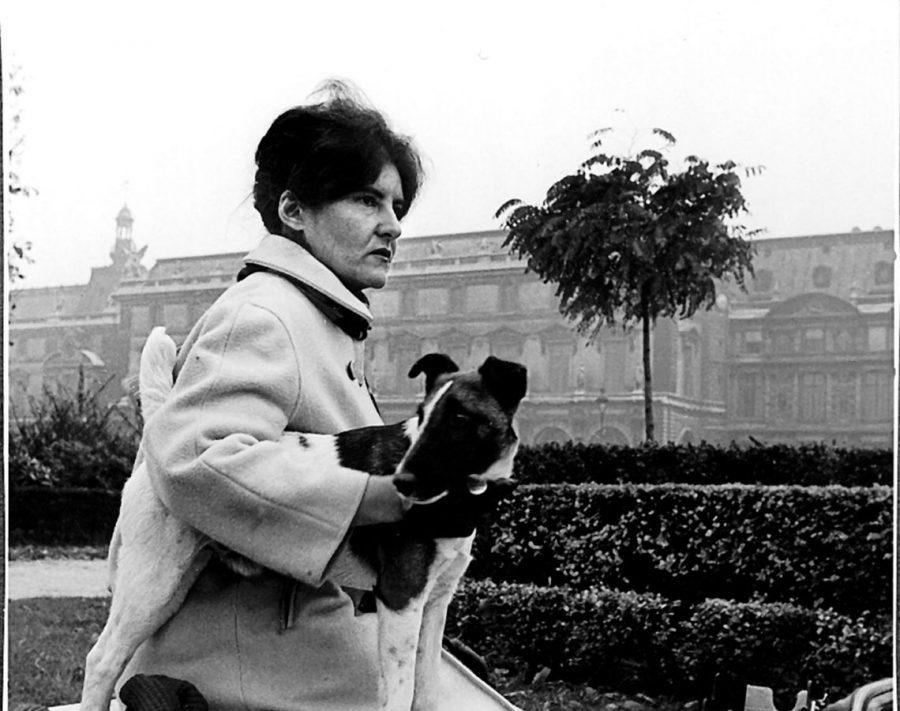Women of the World: why Greek author Margarita Liberaki should be your next summer read
Before Elena Ferrante, there was Margarita Liberaki. The Greek author’s style is reminiscent of Ferrante’s dreamy Italian prose, just around 50 years beforehand. With her focus on Greek culture and life, Liberaki brings to life the Greek islands of the early 20th century and paints portraits of their inhabitants. With only three published novels, Liberaki is not incredibly well-known outside of Greece and Cyprus, but I believe that her work deserves the same level of recognition as those who have followed in her footsteps.
Born in Athens in 1919, Liberaki was raised by her grandparents, who owned a publishing house and bookstore. After completing her law degree, she wrote her first, and most iconic, novel Three Summers. Divorcing her husband and fellow writer in 1946, Liberaki moved to Paris and made the switch from novels to plays, in both French and Greek. While only writing three novels in her lifetime, Liberaki wrote many plays and even turned to screenwriting as well. Liberaki’s only daughter, Margarita Karapanou, also went on to be a novelist herself, with her most well-known novel, Kassandra and the Wolf (1974), going on to become a contemporary classic in Greece.
Its themes of uncertainty and change reflect the ever-changing and politically unstable world that Liberaki herself was writing in
Liberaki’s most well-known novel is her 1949 novel Three Summers. Split into three sections, each following a different summer, the novel follows the lives of sisters Maria, Infanta and Katerina. Told from the perspective of Katerina, the novel follows the three girls as they try to understand the world of the adults around them and decide what kinds of adults they want to be. The novel is set in the countryside outside of Athens in the years leading up to the Second World War; its themes of uncertainty and change reflect the ever-changing and politically unstable world that Liberaki herself was writing in. Through the lives of the distinctly different sisters, Liberaki explores themes of growing up, womanhood, and family in early twentieth-century Greece.
Three Summers had a large cultural impact in both Greece and Cyprus, cementing Liberaki as a household name. The novel is now a standard part of both the Greek and Cypriot education systems: think our equivalent of Frankenstein or Jekyll and Hyde. The novel was also turned into a TV miniseries in Greece in 1995, continuing the book’s legacy into the digital age. Outside of Greece and Cyprus, however, the novel has also had a large impact on the literary community. It has been translated into a range of different languages, from German to French to English. The novel is widely beloved by the international literary community, even being re-published as a New York Review of Books classic. Albert Camus even advocated for the book to be published in France in 1950, where it became a huge success. In a letter to Liberaki, he even wrote: “The sun has disappeared from books these days,” but that “You are one of those who pass it on.”
Liberaki’s third and final book, The Other Alexander, was published in 1950 and is a stark diversion from the quiet serenity of Three Summers. Set in post-World War II Greece, the story centres on a young man named Alexander who is caught between the expectations of his family and his own desires. As he navigates his personal journey of self-discovery, Alexander grapples with the tensions between societal norms and his yearning for a different path. The novel delves into themes of love, freedom, and the search for one’s true self, set against the backdrop of Greece’s changing social and cultural landscapes.
Her novels are a time capsule of early 20th-century Greece, reflecting both the quieter individual struggles of the women in Three Summers and the grander social issues of The Other Alexander
After moving to Paris, Liberaki turned her hand to playwriting and screenwriting. She wrote screenplays for films such as 1962’s Phaedra and 1999’s Diaspora, with the latter following the lives of Greek intellectuals who had been exiled to Paris by the military junta. But where she really thrived was in the theatre. Liberaki wrote several plays in her lifetime, both in French and Greek. She wrote a trilogy of plays which she referred to as Mythical Theatre, compiling Candaules’ Wife, The Danaïds and The Secret Bed. The wide range of not only literary forms but languages that Liberaki was able to master is a testament to her true literary prowess and true love for the arts.
While largely unheard of to the average reader, Margarita Liberaki’s literary impact should not go unnoticed. Her novels are a time capsule of early 20th-century Greece, reflecting both the quieter individual struggles of the women in Three Summers and the grander social issues of The Other Alexander. With her luscious descriptions and realistic dialogue, Liberaki enamors her readers with these small slices of Greek life. For any reader looking to diversify their bookshelf, or for any reader who wants to feel like they’re in the beautiful Greek countryside rather than dreary old England, I cannot recommend Margarita Liberaki as your perfect summer read enough.

Comments